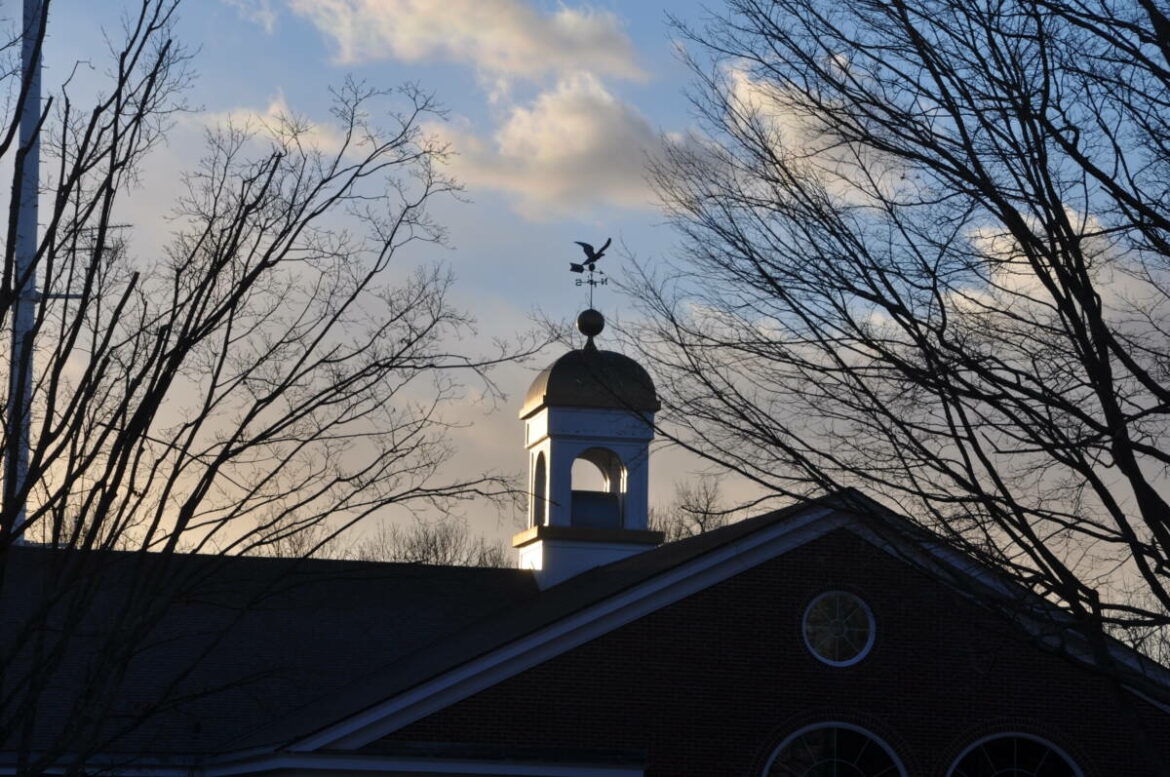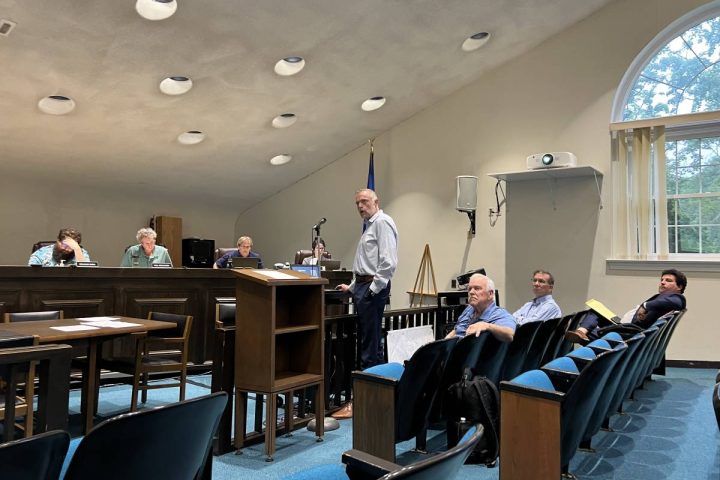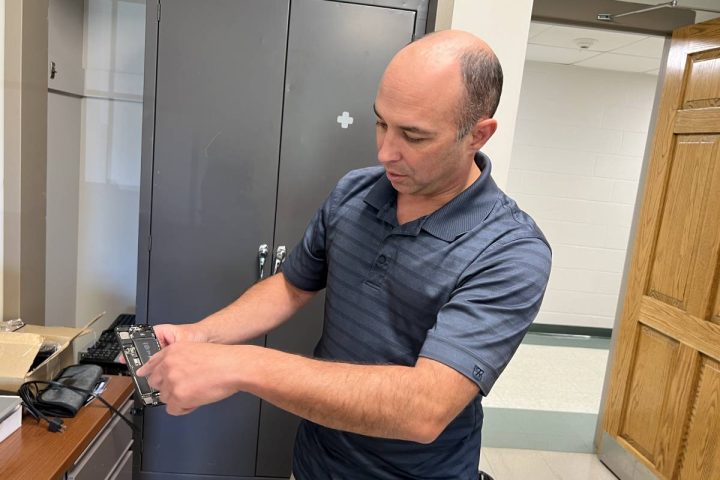MONROE, CT — Planning and Zoning commissioners approved Quarry Ridge, a proposal to build a 99-unit cluster housing community on Turkey Roost Road, by a narrow 3-2 vote Thursday night. The approval includes conditions.
Chairman Michael O’Reilly noted how the current property owner paid his taxes for the past 20 years and made improvements to a property previously used as an illegal quarry. He also said both the applicant’s and the town’s traffic consultants concluded that Turkey Roost Road could handle the additional traffic, which is expected to double.
“Unfortunately, more students will impact our school system — 80, 90, we don’t know how many there will be, but we can’t base our decision on this,” O’Reilly said, adding commission decisions are made on land use, not education.
O’Reilly also pointed out how the developer reduced the number of bedrooms by 81 or about 20 percent, which he called significant.
“It’s well buffered and hidden away with an additional 31 acres of open space,” he said of the acreage to be preserved over the roughly 50 acre requirement.
Commissioners Ryan Condon and Robert Westlund joined O’Reilly in voting in favor of the special exception permit application.
Vice Chairman Bruno Maini and Commissioner Leon Ambrosey voted no.
During deliberations, Ambrosey reiterated his concerns over traffic safety on Turkey Roost, which is a windy, narrow road. He also questioned whether a portion of the septic system could be in both parts of a split zone.
The more than 150 acre property is located at 139, 141, and 201 Turkey Roost Road and 30 Cobblers Hill Court. It is in a split zone with a Multifamily Housing Residential District (MFR) and Residential Farming 2 (RF-2).
All of the housing and most of the septic system is in the MFR, while a portion of the leaching fields is in the RF-2. Town zoning does not allow septic for a commercial use in a split zone to be on the residential portion, but does not make specifically restrict it when both zones in a split zone are residential.
Westlund asked Charles Andres, the commission’s attorney, for his legal opinion on the matter.
Andres said he considered the leaching fields to be an accessory of the septic system, that he believes the town’s zoning regulations are ambiguous and that there could be defensible arguments for and against allowing it.
Ultimately, Andres said it was up to the commission to decide whether or not to allow part of the septic system to be in the RF-2 zone, adding his belief commissioners should make a decision then be consistent moving forward.
The Quarry Ridge housing development will have 63 detached three bedroom units, 30 detached four bedroom units, and six one bedroom affordable units within three one-story duplexes.
The affordable units were included by the developer as a compromise to help the town’s effort to comply with a state mandate that at least 10 percent of all municipalities’ housing stock meet its definition of affordable housing.
Maini asked if the affordable units will stay affordable forever, while noting how affordable units in a Trumbull development expired and can now be sold at fair market rates.
Andres said affordable units are usually required to stay that way for 40 years, but the Quarry Ridge units have no such expiration date.
Then Maini wondered what protections the town would have if ownership of the property changes hands and the new owner does not want to build the affordable units.
All respectful comments with the commenter’s first and last name are welcome.







So if the leaching fields fail in 10 or so years and there is not enough room to expand, will this prevent the owners from selling because they don’t have a working septic system?